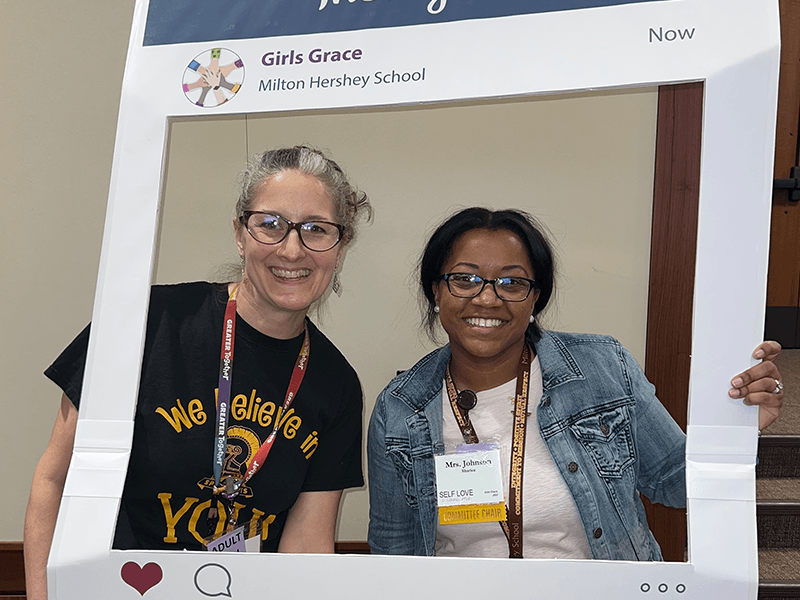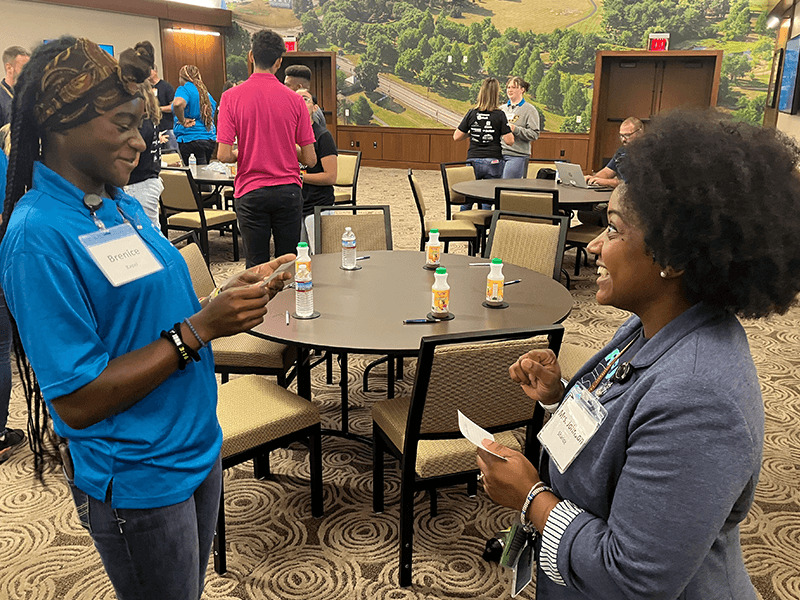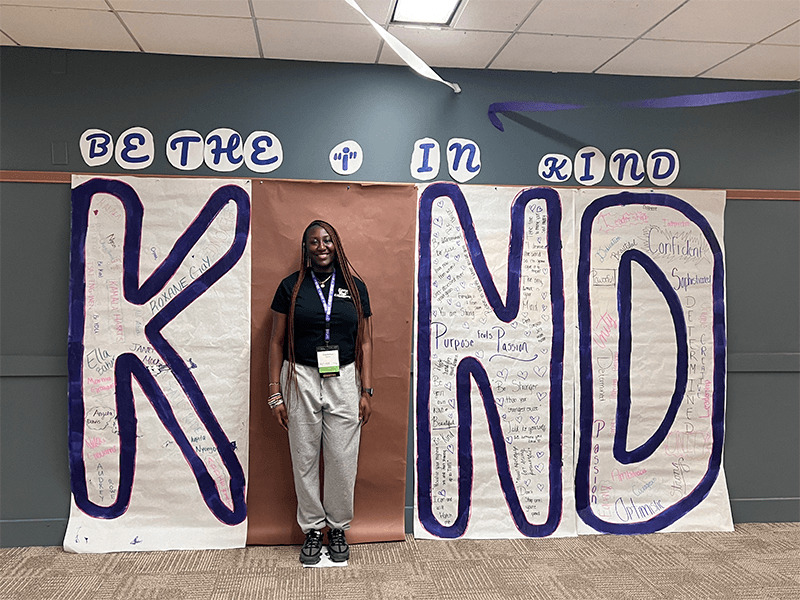Fostering an Environment of Leadership at Milton Hershey School
By Sharice Johnson, MHS Coordinator of Student and Staff Engagement
Students do not become strong leaders by default. They become strong leaders by learning from the adults around them, whether at Milton Hershey School or beyond. Those adults are our parents, teachers, coaches, and mentors who we consider to be role models for our youth. As the MHS Coordinator of Student Character and Leadership Development and the supervisor of the MHS Mentoring Our Leaders’ Development (M.O.L.D.) program, I firmly believe in the power of one. It’s the thought that it only takes one caring adult to see something special in a child—to empower, inspire and encourage them to lead by making good choices every day.

I take the role of an educator and mentor very seriously. As I look back on my own experience growing up, mentors and coaches in school programming were influential adults who demonstrated the meaning of teamwork, the importance of showing up prepared and ready, and taught me what it takes to push through difficult situations.
School programming provides students the opportunity to grow leadership capabilities through consistent practices such as:
- Developing a growth mindset
- Working with others
- Taking ownership of their own development
- Leading by example
- Modeling strong character based in positive values
These practices are what influences positive outcomes for youth, including higher academic achievements, greater involvement in enrichment experiences, and social and emotional growth. At MHS programming focused on instilling these practices is not the desire, but the expectation. As a community, we see it as our duty to work alongside the families of our students to ensure that every student leaves MHS with the social and emotional skills necessary to succeed beyond our walls.
I have the unique opportunity to engage with our students on so many levels, including through several student-focused programs offered on campus. I incorporate these practices into all these student engagement opportunities that I lead, like the Girls Grace Empowerment Conference, Cultural Diversity Club, the Student Engagement Team, and the Compass Project Grow forums.
As I spend more time with our students, I’ve learned that when students are invested in their own leadership development, they build a stronger sense of belonging at school and in their community.
Students are our future and the leaders of tomorrow.
Let’s continue to encourage our students to get active and involved through school programming.




